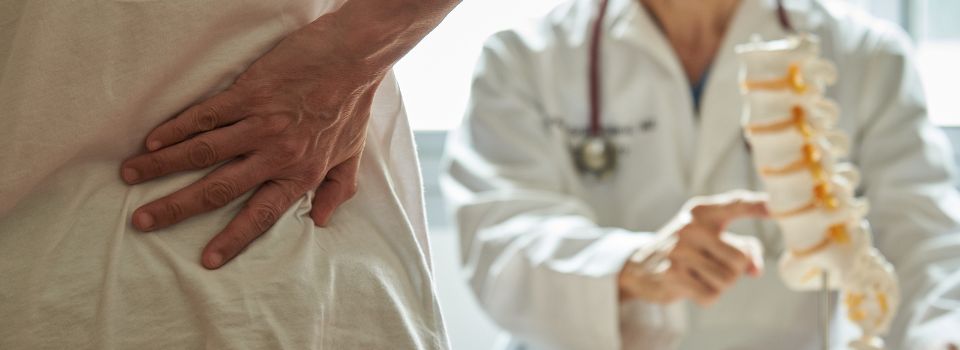Navigating the world of medical specialties can be a confusing journey, especially when it comes to managing persistent pain. Two pivotal roles in this realm are those of the physiatrist and the pain management doctor, each playing a unique part in the diagnosis, treatment, and management of pain.
Advanced Pain Medical Group, serving Los Angeles, Kern, and Ventura County, is dedicated to clarifying these roles and helping individuals find the right path to pain relief and improved quality of life.
Understanding The Role Of A Physiatrist
A physiatrist, often known as a doctor of physical medicine and rehabilitation (PM&R), specializes in non-surgical treatments aimed at enhancing and restoring functional ability and quality of life to those with physical impairments or disabilities. This kind of medical professional focuses on the whole body and integrates physical, emotional, and social aspects of health to help patients achieve optimum levels of function and independence.
- Diagnosis and management of pain resulting from injury, illness, or disabling conditions.
- Development of comprehensive treatment plans including physical therapy, medications, and non-surgical interventions.
- Focus on restoring function to various body parts after injury.
- Coordination of a multidisciplinary approach to patient care.
The Pain Management Doctor: A Closer Look
On the other hand, a pain management doctor, or pain management specialist, usually has training in anesthesia, neurology, or physical medicine and rehabilitation, among other specialties. Their primary focus is on the management of pain, whether acute or chronic, and they utilize various interventional techniques to provide relief.
- Expertise in diagnosing different types of pain disorders.
- Application of interventional methods such as nerve blocks, spinal injections, and other minimally invasive procedures for pain relief.
- Development of personalized pain management plans.
- Incorporation of medications, physical therapy, and lifestyle modifications into treatment strategies.
Differing Areas Of Focus
While both physiatrists and pain management doctors aim to improve the patient’s quality of life through pain relief, their approaches and areas of focus differ significantly. Understanding these differences is crucial for patients seeking the most appropriate care for their specific conditions.
Holistic Approach vs. Symptom Management
Physiatrists tend to adopt a broad, rehabilitative approach that encompasses the entirety of a patient’s physical and emotional well-being. Their work often involves creating a cohesive treatment plan that integrates various therapies to restore function and mobility. Pain management specialists, in contrast, have a more focused approach on alleviating pain directly, often resorting to interventional techniques that target the specific areas of discomfort. Their goal is chiefly to reduce or eliminate pain, which, in turn, can enhance functional ability.
Functional Restoration vs. Pain Reduction
Physiatrists often work towards restoring functional abilities lost due to injury or illness, employing therapies that enhance mobility, strength, and independence. In contrast, pain management doctors primarily aim to reduce or alleviate pain, sometimes prioritizing this over functional improvement.
Choosing The Right Specialist For Your Needs
When deciding between a physiatrist and a pain management doctor, consider the nature of your condition and your specific needs. A quality care plan can include both types of specialists, and by combining their expertise they can offer a wider range of treatment options.
- If your primary concern is pain relief from a recent surgery or injury, a pain management specialist might be more suited to your needs.
- If you’re dealing with a long-term condition that affects your mobility or quality of life, a physiatrist may offer a more comprehensive approach to your care.
- With input from both specialists, the treatment plan can be tailored to address the underlying causes of pain and functional limitations while considering the patient’s overall health, goals, and preferences.
Treatment Plans & Therapies
Both physiatrists and pain management doctors employ a range of treatments and therapies. However, their philosophies can inform the direction of these treatments.
Physiatrists
- Physical therapies and exercises tailored to improve function.
- Assistive devices to aid in daily activities and mobility.
- Pain management through non-invasive techniques.
- Lifestyle and dietary consultations to promote overall health.
Pain Management Specialists
- Medicinal therapies, including prescriptions for pain relief.
- Interventional procedures like epidural injections.
- Minimally invasive surgeries for chronic pain conditions.
- Guidance on pain coping mechanisms and psychological support.
Common Conditions Treated
Physiatrists and pain management doctors can overlap in the conditions they treat, yet their perspectives may guide them to emphasize different aspects of care.
- Back Pain
- Arthritis
- Nerve Damage
- Chronic Pain Syndromes
The Importance Of A Multidisciplinary Approach
In many cases, the most effective treatment plan involves a combination of specialties. A physiatrist might work closely with a pain management specialist to develop a comprehensive approach that addresses both the functional and pain aspects of a patient’s condition. By addressing both functional limitations and pain symptoms concurrently, the care team can work towards maximizing the patient’s overall outcomes.
Take Advantage Of Pain Management Expertise
At Advanced Pain Medical Group, serving Los Angeles, Kern, and Ventura County, we pride ourselves on offering a collaborative approach to pain management and rehabilitation. Our team of pain management specialists works with you to provide a personalized treatment plan tailored to each patient’s unique needs. Whether that is working with a physiatrist to help you get optimal results on a long term care plan or providing you with hope with our interventional procedures, our team of experts is here for you.
If you’re in Los Angeles, Kern, or Ventura County, let us guide you toward a solution that brings relief and restores function.

